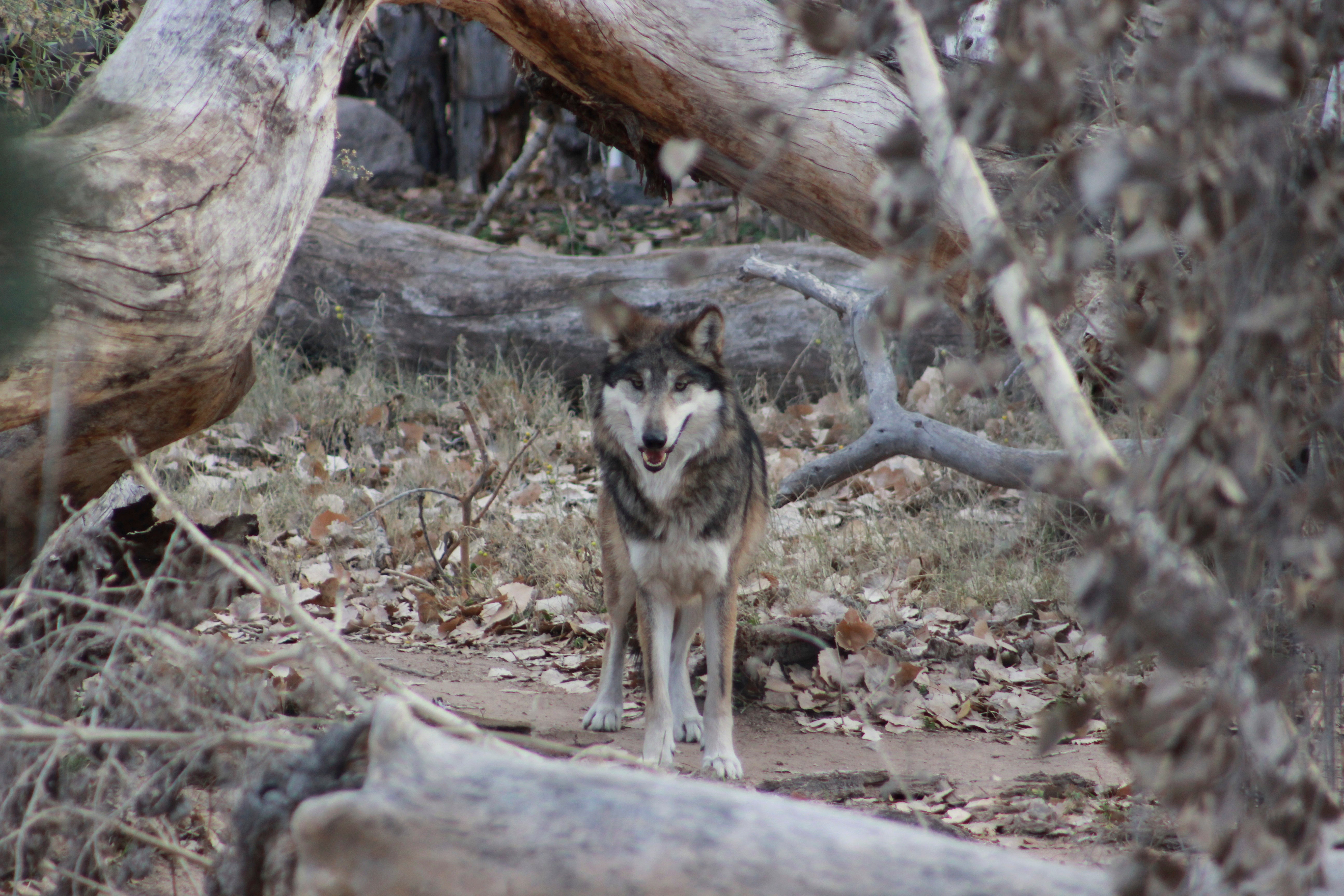New Mexico zoo sends endangered wolf pack to Mexico
A New Mexico zoo has sent a pair of endangered Mexican gray wolves and their seven pups to Mexico as part of conservation efforts in that country

Your support helps us to tell the story
From reproductive rights to climate change to Big Tech, The Independent is on the ground when the story is developing. Whether it's investigating the financials of Elon Musk's pro-Trump PAC or producing our latest documentary, 'The A Word', which shines a light on the American women fighting for reproductive rights, we know how important it is to parse out the facts from the messaging.
At such a critical moment in US history, we need reporters on the ground. Your donation allows us to keep sending journalists to speak to both sides of the story.
The Independent is trusted by Americans across the entire political spectrum. And unlike many other quality news outlets, we choose not to lock Americans out of our reporting and analysis with paywalls. We believe quality journalism should be available to everyone, paid for by those who can afford it.
Your support makes all the difference.A pair of endangered Mexican gray wolves and their seven pups have been sent from a zoo in New Mexico s largest city to Mexico as part of conservation efforts in that country.
Officials at the ABQ BioPark in Albuquerque confirmed Tuesday that the wolves were loaded up in separate crates and trucked south last week. The pack of predators will eventually be released into the wild after they learn to hunt and survive on their own.
The zoo is among others in the United States that have partnered with the U.S. Fish and Wildlife Service for decades on Mexican gray wolf breeding and recovery efforts. Several wolves born at the zoo have been released into the wild over the years, but this marks its first international pack release.
“We’re excited and sad at the same time,” Erin Flynn, ABQ BioPark mammal curator, said in a statement. “It’s a zoo’s dream to directly help a wild population like this. It’s even more powerful and touching for us that it's our beloved lobo that we’re helping.”
The pack was selected for release in part because it has shown to be a strong family, Flynn said.
The male wolf arrived at the zoo in late 2018 and warmed up to his mate quickly. The two had their first litter of three pups in 2019, marking the first pups born at the zoo in 15 years. Their second litter of seven pups arrived in May 2020.
The female wolf came to the BioPark in 2016 after being born at the Zoológico de San Juan de Aragón in Mexico.
Once across the border, the pack was taken to a “wilding school” near Mexico City by a team from Universidad Autónoma de Querétaro.
Teaching the wolves to hunt will be hands-off, Flynn said. Biologists and environmentalists who have advocated for releasing more wolves into their historic range in northern Mexico and parts of the American Southwest have said less human contact can help ensure better outcomes in the wild.
More Mexican wolves are in the wild now than at any time since they were nearly exterminated decades ago. At least 163 wolves were counted during last year's survey in southeastern Arizona and southwestern New Mexico, marking a nearly 25% jump in the population from the previous year. There are an estimated 30 wolves in the wild in Mexico's Sierra Madre Occidental.
Work is underway on this year's survey, with results expected in the coming weeks.
A subspecies of the Western gray wolf, Mexican wolves have faced a difficult road to recovery that has been complicated by politics and conflicts with livestock. The challenges have been mounting: Ranchers and rural residents say the situation has become untenable as 2019 marked a record year for livestock kills. In the first nine months of 2020, 140 kills were confirmed.
Federal and state wildlife managers have established several food caches in Arizona and New Mexico as a way to keep the wolves from preying on cattle. They also have logged several dozen efforts to scare away wolves to try to prevent more conflicts.
The Fish and Wildlife Service also is in the process of rewriting rules that govern management of the wolves due to a legal challenge by environmentalists. A federal judge has ordered the new rules to be finalized by May 21.